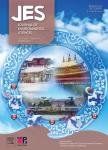Human impacts on the terrestrial ecosystem of Fildes Peninsula of King George Island, Antarctica
Human impacts on the terrestrial ecosystem of Fildes Peninsula of King George Island, Antarctica出 版 物:《Journal of Environmental Sciences》 (环境科学学报(英文版))
年 卷 期:2000年第12卷第1期
页 面:14-19页
核心收录:
学科分类:083001[工学-环境科学] 0830[工学-环境科学与工程(可授工学、理学、农学学位)] 08[工学]
主 题:Antarctica Fildes Peninsula terrestrial ecosystem human impacts CLC number: X21 Document code: A
摘 要:Antarctic environment has valuable baseline information for understanding the global change. The objectives of this study were to investigate the impacts of human activities on Antarctic terrestrial ecosystem. Based on the investigation results and the sampling analysis of the environment of Fildes Peninsula, King George Island, Antarctica, it was shown that there are some artificial radioactive elements—? ? 137 Cs in Antarctic environment: the radioactivity of 137 Cs in the surface soil, the surface moss, the fruticose lichen and the crustaceous lichen are 6 00—14 80, 25 07, 29 04 and 58 07 Bq/kg separately; i.e. the sequence of 137 Cs specific activity is as follows: crustaceous lichenfruticose lichensurface mosssurface soil, which demonstrates that the crustaceous lichen is one of the most sensitive monitor ways for the effect of the long term diffusion of 137 Cs. The impacts of the scientific research activities on the partial ecosystem of Fildes Peninsula include: the changes of the landscape and the soil material have made a strong freezing thawing process, which decreases the stability of the ground surface, causes the degradation of the vegetation in the some small areas; some small lakes, runoff and lichens in middle areas of Fildes Peninsula have been affected by the wastes of the stations, in the surrounding areas of the expedition stations, the concentration of Cr, Cu, Ni, Pb and Zn in the lichen and the water are higher than that of the contrasting area. Fildes Peninsula is one of the most crowded areas of expedition stations, at some extent, the environment and terrestrial ecosystem have been affected by the human activities. The conservation of the environment and ecosystem should be an important aspect of Antarctic environmental sciences.



